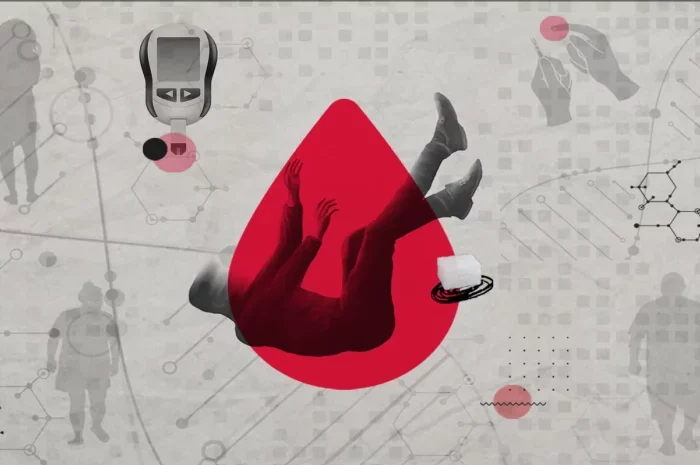Insulin resistance, a hallmark of type 2 diabetes mellitus (T2DM) and a precursor to a myriad of metabolic disorders, continues to pose a significant challenge to healthcare providers worldwide. Its prevalence has reached epidemic proportions, with a staggering increase in recent decades. Despite extensive research efforts, the exact etiology of insulin resistance remains elusive, presenting a complex interplay of genetic, environmental, and lifestyle factors. In this comprehensive review, we delve into the intricate mechanisms underlying insulin resistance, aiming to decipher its root cause and pave the way for innovative therapeutic interventions.
The Genesis of Insulin Resistance: A Multifactorial Puzzle
At its core, insulin resistance manifests as an impaired response of target tissues, primarily skeletal muscle, liver, and adipose tissue, to the actions of insulin. This dysregulation culminates in diminished glucose uptake, aberrant lipid metabolism, and disrupted signaling cascades, ultimately fostering a state of hyperglycemia, dyslipidemia, and systemic inflammation. While the pathophysiology of insulin resistance is multifaceted, several key factors emerge as pivotal players in its genesis.
Genetic Susceptibility: Unraveling the Genetic Tapestry
Genetic predisposition plays a crucial role in the development of insulin resistance, with numerous susceptibility loci identified through genome-wide association studies (GWAS). Polymorphisms in genes encoding insulin receptor substrates (IRS), glucose transporters (GLUT), and key enzymes involved in insulin signaling pathways have been implicated in conferring susceptibility to insulin resistance. Additionally, familial clustering of insulin resistance underscores the hereditary component of this metabolic derangement, highlighting the intricate interplay between genetic determinants and environmental influences.
Adipose Tissue Dysfunction: Adiposity Matters
Adipose tissue, once regarded as a mere storage depot for lipids, emerges as a dynamic endocrine organ orchestrating a myriad of metabolic processes. Dysfunctional adipocytes exhibit aberrant secretion of adipokines, including adiponectin, leptin, and tumor necrosis factor-alpha (TNF-α), which modulate insulin sensitivity and systemic inflammation. The expansion of visceral adipose tissue, particularly in the context of obesity, engenders a pro-inflammatory milieu characterized by macrophage infiltration and cytokine release, perpetuating insulin resistance through intricate paracrine and endocrine mechanisms.
Mitochondrial Dysfunction: Unveiling the Powerhouses of the Cell
Mitochondria, the powerhouse of the cell, play a pivotal role in cellular energy metabolism and redox homeostasis. Emerging evidence implicates mitochondrial dysfunction as a central player in the pathogenesis of insulin resistance. Perturbations in mitochondrial biogenesis, dynamics, and oxidative capacity impair cellular fuel utilization, culminating in the accumulation of lipotoxic intermediates and reactive oxygen species (ROS). These metabolic derangements unleash a cascade of deleterious effects, including impaired insulin signaling, oxidative stress, and inflammation, thereby perpetuating the vicious cycle of insulin resistance and metabolic dysfunction.
Inflammation: The Fiery Nexus
Chronic low-grade inflammation emerges as a hallmark feature of insulin resistance, bridging the gap between metabolic dysregulation and immune activation. Adipose tissue serves as a primary site of inflammatory crosstalk, with resident immune cells, such as adipose tissue macrophages (ATMs), orchestrating a pro-inflammatory microenvironment. Toll-like receptor (TLR) signaling, inflammasome activation, and cytokine secretion converge to disrupt insulin signaling pathways, impair glucose uptake, and promote insulin resistance. Systemic inflammation further exacerbates metabolic dysfunction, fostering a deleterious cycle of reciprocal interactions between metabolic and immune pathways.
Endoplasmic Reticulum Stress: Unraveling the UPR Pathway
The endoplasmic reticulum (ER) emerges as a central hub integrating metabolic and stress signaling pathways, orchestrating adaptive responses to cellular perturbations. ER stress, elicited by nutrient excess, lipotoxicity, and inflammatory mediators, triggers the unfolded protein response (UPR), a conserved signaling cascade aimed at restoring ER homeostasis. However, chronic activation of the UPR engenders insulin resistance through multiple mechanisms, including inhibition of insulin receptor signaling, dysregulation of lipid metabolism, and induction of inflammatory pathways. ER-mitochondrial crosstalk further exacerbates metabolic dysfunction, perpetuating a vicious cycle of cellular stress and insulin resistance.
Environmental Triggers: Unmasking the Culprits
Beyond genetic predisposition, environmental factors exert a profound influence on the development of insulin resistance. Sedentary lifestyle, excessive caloric intake, and dietary composition emerge as key determinants of metabolic health. Western dietary patterns, characterized by high consumption of refined carbohydrates, saturated fats, and processed foods, fuel the obesity epidemic and promote insulin resistance through diverse mechanisms. Furthermore, environmental toxins, including endocrine-disrupting chemicals (EDCs) and air pollution, have been implicated in perturbing metabolic homeostasis and exacerbating insulin resistance, underscoring the intricate interplay between environmental exposures and metabolic health.
Conclusion: Navigating the Complex Terrain
In conclusion, insulin resistance represents a multifaceted syndrome characterized by dysregulated glucose metabolism, aberrant lipid homeostasis, and chronic low-grade inflammation. While its etiology encompasses a complex interplay of genetic, environmental, and lifestyle factors, unraveling the root cause of insulin resistance remains an ongoing endeavor. By elucidating the intricate mechanisms underlying insulin resistance, we can pave the way for innovative therapeutic interventions targeting key pathways implicated in its pathogenesis. Future research endeavors should focus on unraveling the genetic determinants, environmental triggers, and molecular pathways driving insulin resistance, with the ultimate goal of mitigating its burden and improving metabolic health on a global scale.
Related topics:
Is Insulin Resistance a Form of Diabetes?



























